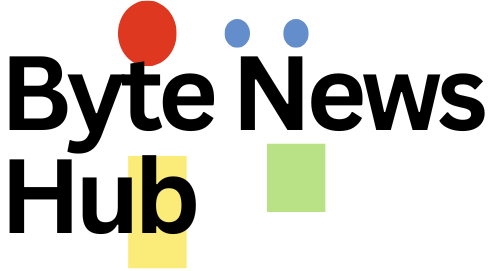Introduction
Blockchain technology has emerged as a revolutionary force, transforming the way digital transactions are conducted. Initially introduced as the backbone of cryptocurrencies like Bitcoin, blockchain has since expanded into various industries, offering unparalleled security, transparency, and efficiency. As businesses and individuals increasingly rely on digital transactions, understanding how blockchain is reshaping this landscape is crucial.
This article delves into the fundamentals of blockchain technology, its impact on digital transactions, and the opportunities it presents for businesses and consumers.
What is Blockchain Technology?
At its core, blockchain is a decentralized ledger that records transactions across multiple computers. This structure ensures that data is transparent, tamper-proof, and easily verifiable.
Key Features of Blockchain:
- Decentralization: Eliminates the need for intermediaries, reducing costs and increasing efficiency.
- Immutability: Transactions once recorded cannot be altered, ensuring data integrity.
- Transparency: All participants have access to the same information, fostering trust.
- Security: Advanced cryptographic techniques protect data from unauthorized access.
Blockchain’s Role in Digital Transactions
Blockchain is redefining digital transactions by addressing many of the inefficiencies and vulnerabilities of traditional systems.
1. Enhanced Security
Traditional digital transactions rely on centralized systems that are vulnerable to hacking and fraud. Blockchain’s distributed ledger ensures that no single point of failure exists, making it far more secure.
Example:
A blockchain-based payment system encrypts transaction data, ensuring that only authorized parties can access it. Additionally, the decentralized nature of blockchain makes it nearly impossible for hackers to alter records.
2. Eliminating Intermediaries
Blockchain removes the need for intermediaries like banks or payment processors, reducing transaction costs and speeding up processes.
Benefits:
- Lower fees for international money transfers.
- Faster settlement times for financial transactions.
3. Smart Contracts
Smart contracts are self-executing agreements with terms directly written into code. These contracts automatically execute when predefined conditions are met, eliminating the need for manual intervention.
Use Case:
In real estate, smart contracts can automate property transfers, ensuring that funds and ownership documents are exchanged seamlessly.
4. Cross-Border Transactions
Blockchain simplifies cross-border transactions by bypassing traditional banking systems, which are often slow and expensive.
Impact:
- Reduced transaction times from days to minutes.
- Lower costs for remittances and international trade.
5. Improved Transparency
In blockchain-based systems, all participants have access to a single, immutable version of the truth. This transparency reduces the risk of disputes and fraud.
Example:
In supply chain management, blockchain allows all stakeholders to trace the origin and movement of goods, ensuring authenticity and ethical sourcing.
Industries Transforming with Blockchain-Based Transactions
Blockchain’s ability to revolutionize digital transactions extends across various sectors:
1. Finance
Financial institutions are leveraging blockchain to streamline processes such as payments, lending, and trading. Blockchain’s transparency and security have made it a cornerstone of decentralized finance (DeFi).
2. Healthcare
Blockchain enables secure sharing of patient records, ensuring data integrity while maintaining privacy. It also facilitates faster insurance claim processing.
3. Retail and E-commerce
Blockchain ensures secure payments and transparent supply chains, building trust with consumers.
4. Real Estate
By automating property transactions and enabling fractional ownership, blockchain reduces costs and democratizes access to real estate investments.
5. Gaming and Entertainment
Blockchain powers in-game assets and digital collectibles through non-fungible tokens (NFTs), providing players with verifiable ownership and the ability to trade assets securely.
Challenges and Limitations
Despite its advantages, blockchain technology faces several challenges that must be addressed for widespread adoption:
1. Scalability
Current blockchain networks can struggle with handling a high volume of transactions, leading to delays and increased costs.
2. Energy Consumption
Proof-of-Work (PoW) blockchains, like Bitcoin, consume significant energy. Transitioning to more energy-efficient consensus mechanisms, such as Proof-of-Stake (PoS), is essential.
3. Regulatory Uncertainty
Governments worldwide are grappling with how to regulate blockchain technology, creating uncertainty for businesses and investors.
4. Integration with Existing Systems
Integrating blockchain into legacy systems can be complex and costly, especially for larger organizations.
The Future of Blockchain in Digital Transactions
The future of blockchain technology in digital transactions looks promising, with continuous advancements addressing its current limitations.
Key Developments to Watch:
- Layer 2 Solutions: These solutions, like Lightning Network, aim to improve scalability and reduce transaction costs.
- Interoperability: Efforts to enable blockchains to communicate with each other will enhance functionality and adoption.
- Quantum-Resistant Cryptography: Ensures blockchain systems remain secure in the age of quantum computing.
- Mainstream Adoption of DeFi: Decentralized finance is poised to challenge traditional banking systems by offering accessible, transparent, and efficient financial services.
Conclusion
Blockchain technology is redefining digital transactions by introducing a new standard of security, transparency, and efficiency. While challenges remain, the potential for innovation and disruption across industries is immense. As businesses and individuals continue to embrace this transformative technology, blockchain is set to play an increasingly vital role in shaping the future of digital transactions.
Whether you’re a tech enthusiast, a business leader, or a curious consumer, staying informed about blockchain technology is essential for navigating the digital economy of tomorrow.

